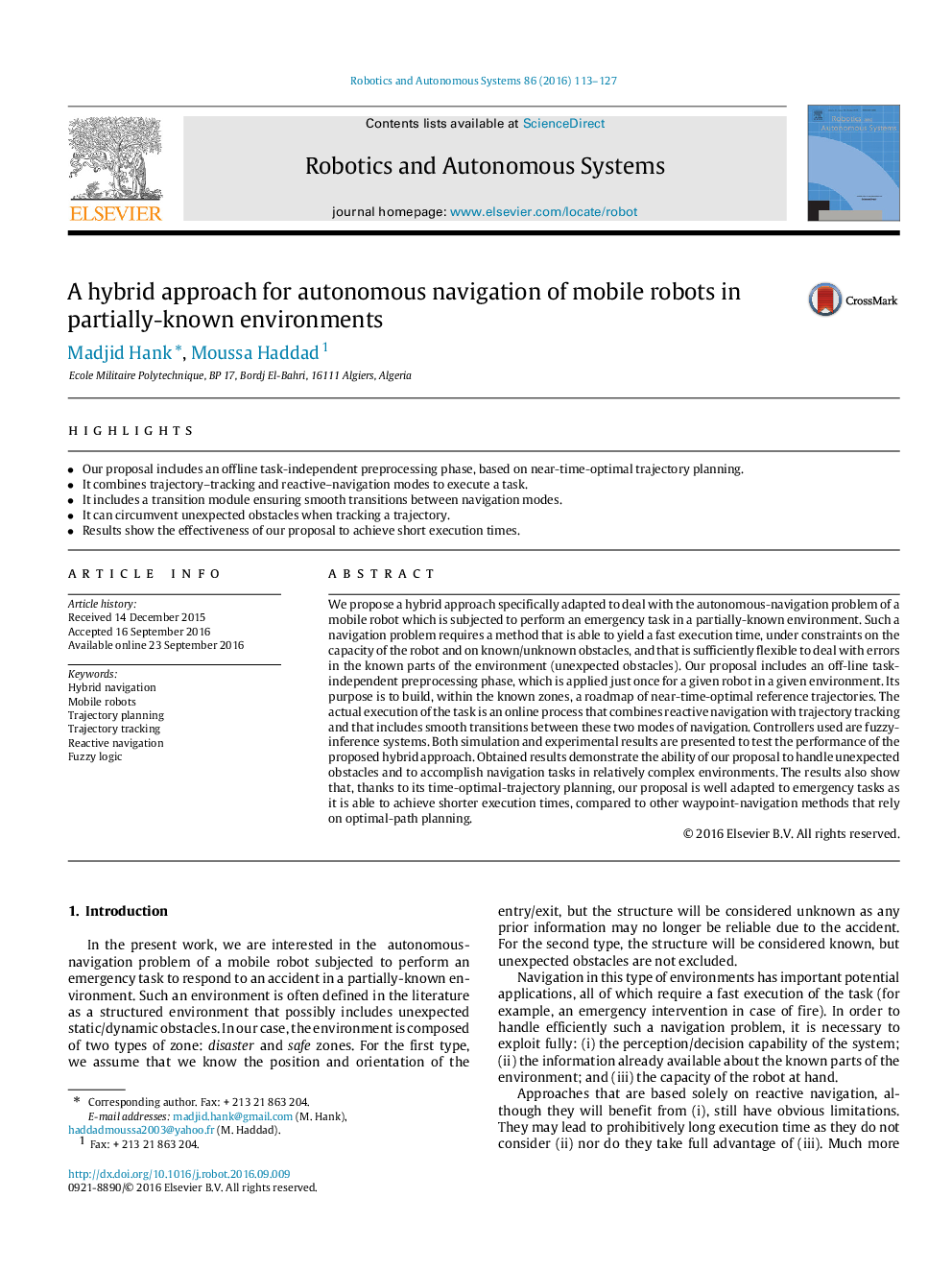| Article ID | Journal | Published Year | Pages | File Type |
|---|---|---|---|---|
| 4948914 | Robotics and Autonomous Systems | 2016 | 15 Pages |
Abstract
We propose a hybrid approach specifically adapted to deal with the autonomous-navigation problem of a mobile robot which is subjected to perform an emergency task in a partially-known environment. Such a navigation problem requires a method that is able to yield a fast execution time, under constraints on the capacity of the robot and on known/unknown obstacles, and that is sufficiently flexible to deal with errors in the known parts of the environment (unexpected obstacles). Our proposal includes an off-line task-independent preprocessing phase, which is applied just once for a given robot in a given environment. Its purpose is to build, within the known zones, a roadmap of near-time-optimal reference trajectories. The actual execution of the task is an online process that combines reactive navigation with trajectory tracking and that includes smooth transitions between these two modes of navigation. Controllers used are fuzzy-inference systems. Both simulation and experimental results are presented to test the performance of the proposed hybrid approach. Obtained results demonstrate the ability of our proposal to handle unexpected obstacles and to accomplish navigation tasks in relatively complex environments. The results also show that, thanks to its time-optimal-trajectory planning, our proposal is well adapted to emergency tasks as it is able to achieve shorter execution times, compared to other waypoint-navigation methods that rely on optimal-path planning.
Related Topics
Physical Sciences and Engineering
Computer Science
Artificial Intelligence
Authors
Madjid Hank, Moussa Haddad,
